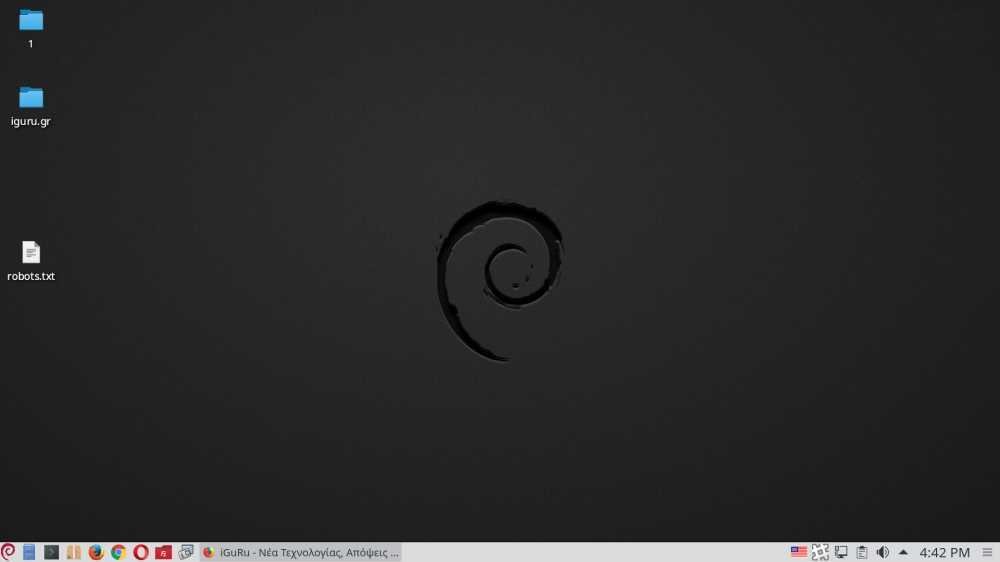Debian is a wholly voluntary organization devoted to the development of free software and the promotion of the Free Software community.
The Debian project launched 1993, when Ian Murdock issued an open invitation to software developers to contribute to a complete and coherent distribution of software based on the then new Linux kernel. 
This relatively small group of excited and devoted people, initially funded by the Free Software Foundation and influenced by the GNU project philosophy, has developed over the years in an organization with about 1062 Debian developers.
Debian developers are involved in various activities, including Web and FTP Web site management, graphic design, legal analysis of software licenses, documentation writing, and, of course, maintenance of software packages.
Debian, along with Arch and Fedora, are my favorite distributions, the ones I use on a daily basis. For Debian I prefer the fixed version, although I find testing much more stable than many other "fixed" distributions.
Debian has 3 different versions:
Stable (constant): the latest official edition. Issue programs are rarely renewed (except for emergency fixes). After Debian 6.0, new releases are released every two years. When a new version is available, the previous stable version becomes oldstable. The oldstable version is supported up to 1 time after the release of the new stable release.
Testing (tested): this version includes all packages (programs) that are not yet considered stable enough and still need to be checked. This version is not intended for use on servers or anyone computer provides critical services. Nevertheless, many users use it because the programs it contains are more recent.
Unstable or sid (still in Development): includes the packages under development. This version should be considered very unstable and used by experienced users. If a package remains in this version for quite some time, it is automatically added to the testing version.
There is finally an above version that carries the name experimental (experimental) which is used only to prepare the packages that will be added to the unstable.
Today I noticed a very good job that has been launched by the Greek Debian community.
Those who are interested in learning more about distribution (history, philosophy, download, installation requirements, installation, and more) can read a very useful guide the community is developing.
The guide concerns the stable version of the operating system, but this does not mean it does not apply to the trial versions.
So if you are someone who has Linux, but only through Mint or Ubuntu, and you want to try Debian, this guide is for you.
If you are a novice user, try a distribution like Mint or Ubuntu.
_____________________________
- Accelerated Mobile Pages (AMP) added again to iGuRu.gr
- The new Tor Browser 7.5 has been released with security updates
- Chrome 62.0.3202.62 available for download
- The first digital signposts are a fact





